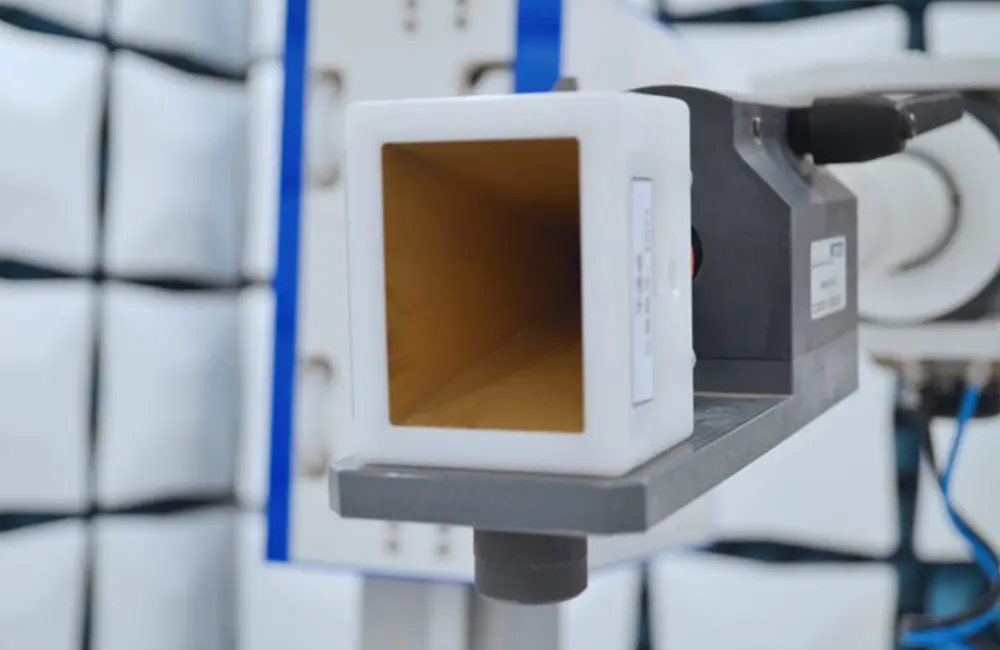
EU Charger Directive (EU) 2022/2380 Testing
On May 7, 2024, the European Commission published the Notice on the Guidelines for the Interpretation of the Universal Charger Directive C/2024/2997 in the Official Journal of the European Union (OJ) to assist with the implementation of Charger Directive (EU) 2022/2380. The guidelines, presented in a Q&A format, address common questions regarding the Universal Charger Directive, including widely concerned issues such as charger requirements, product coverage, and transition periods.
The Universal Charger Directive (EU) 2022/2380, an amendm

ent to the eu red directive 2014/53/EU, introduces additional necessary requirements in Article 3.4 for the conformity of certain devices within the scope of the RED Directive. From the mandatory implementation date of the Universal Charger Directive (EU) 2022/2380, wireless products within the scope of this directive must meet its requirements in addition to safety, EMC, and wireless compliance when undergoing conformity assessment under the red directive before entering the EU market.
We are China JJR Laboratory, with IEC 17025 and GLP qualification certificates, which can help you save 30% of certification testing fees.
What products does (EU) 2022/2380 cover?
- Handheld mobile phones
- Tablets
- Digital cameras
- Headphones
- Headsets
- Handheld videogame consoles
- Portable speakers
- E-readers
- Keyboards
- MICe
- Portable navigation systems
- Earbuds
- Laptops
The amended directive covers 13 types of products, 12 of which will be mandatorily implemented from December 28, 2024, with the requirements for laptop devices coming into force on April 28, 2026.
Can wireless devices that can only be charged wirelessly be sold on the market without adopting a uniform charging solution?
Yes, because these wireless devices cannot be charged via a wired solution, they do not need to adopt a uniform (wired) charging solution. In terms of wireless charging, the European Commission will promote the coordination of a unified wireless charging solution to avoid future internal market fragmentation and negative impacts on consumers and the environment.
Can laptops and other wireless devices that require charging power above 240W be exempt from the "universal charger" regULations?
No, wireless devices subject to the "universal charger" rules must adopt a uniform charging solution. The European Commission has updated the standards referenced in EU 2023/1717, and according to this amendment, if the maximum charging power of a wireless device exceeds 240W, it should still be treated as 240W (previously, the standard was 100W).
Are dedicated charging sockets allowed in addition to USB-C sockets?
Yes, the RED only requires that wireless devices complying with the "universal charger" rules be equipped with a USB-C socket. Therefore, the use of other sockets is not prohibited as long as the wireless devices also include a coordinated charging (USB-C) socket.
What charging options (USB power options) must wireless devices support?
Under the "universal charger" rules, wireless devices with a maximum charging power of less than or equal to 15W must have power coordinated through an integrated USB-C socket. EN IEC 62680-1-3 lists the "power" options available for USB-C sockets that these wireless devices must support, including USB 2.0, USB 3.2, USB 4, USB BC 1.2, USB Type-C Current 1.5 A, USB Type-C Current 3.0 A, and USB PD.
Do these rules apply to products sold outside the EU?
The RED establishes a regulatory framework for placing wireless devices on the EU market, and its rules and requirements only apply within the EU member states. According to relevant agreements, the "universal charger" rules may in the future apply to the European Economic Area-European Free Trade Association countries (Iceland, Liechtenstein, and Norway).
What penalties will manufacturers face if their products do not comply with the Universal Charger Directive?
The directive does not specify any penalties. However, relevant national market surveillance authorities within the EU may take a series of corrective and restrictive measures against non-compliant products, including withdrawal or recall of non-compliant wireless devices.
Email:hello@jjrlab.com
Write your message here and send it to us
 EMC Item – Introduction to Radiated Emission Test
EMC Item – Introduction to Radiated Emission Test
 IEC 62471 Photobiological Safety of Lamps and Lamp
IEC 62471 Photobiological Safety of Lamps and Lamp
 New European Toy Standard EN 71-1:2026
New European Toy Standard EN 71-1:2026
 EN71 Series Standards Compliance February 13, 2026
EN71 Series Standards Compliance February 13, 2026
 European Toy Safety Standard EN 71-20:2025
European Toy Safety Standard EN 71-20:2025
 EN 18031 Certification for Connected Devices on Am
EN 18031 Certification for Connected Devices on Am
 Compliance Guide for Portable Batteries on Amazon
Compliance Guide for Portable Batteries on Amazon
 2026 EU SVHC Candidate List (253 Substances)
2026 EU SVHC Candidate List (253 Substances)
Leave us a message
24-hour online customer service at any time to respond, so that you worry!




